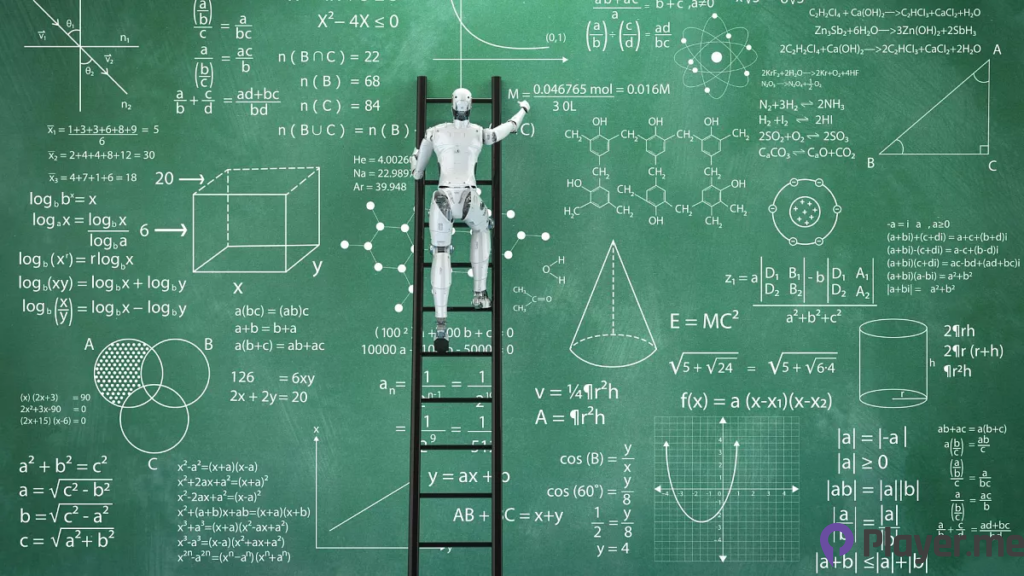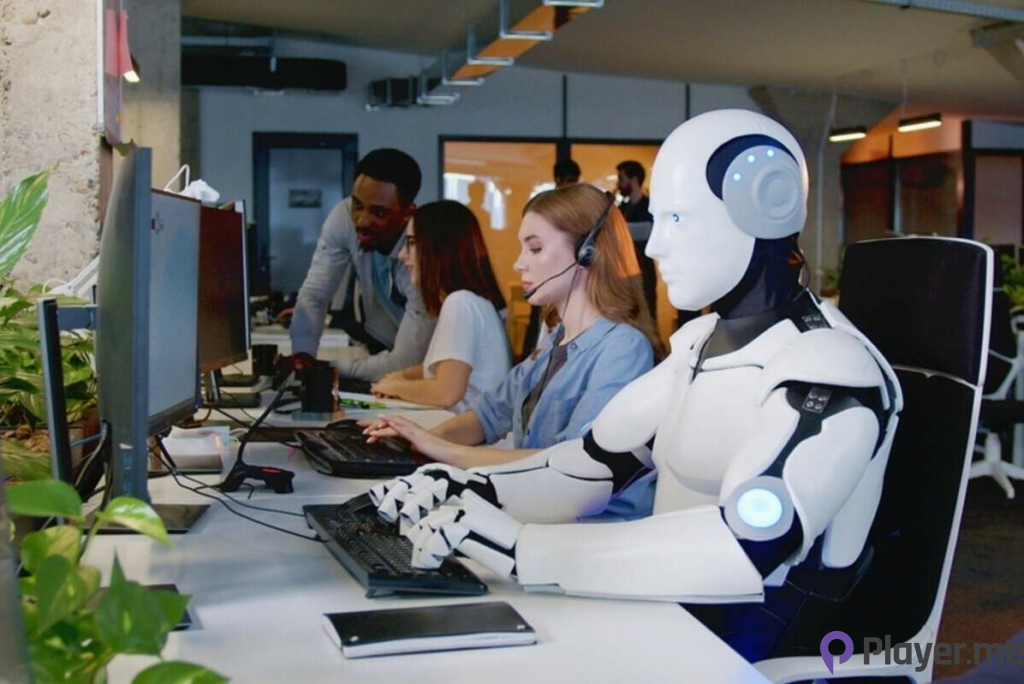Remember the time when analysts used to say that Artificial Intelligence (AI) would take over the world? I guess the time has always come. According to a report by the International Monetary Fund (IMF), AI impact on jobs will almost be 40% worldwide. So, is the takeover starting to happen? We’ll know in a few years.
AI poses a significant challenge to vulnerable workers and demands the establishment of robust social safety nets. The IMF’s analysis reveals that advanced economies, including the U.S. and the UK, are particularly at risk, with 60% of jobs exposed to AI, potentially affecting half of them negatively.
While AI promises enhanced productivity for certain roles, it could also lead to the displacement of others, causing labour demand reduction, lower wages, and potential job disappearance. So before AI eats up your job, start learning about this trending technology so it won’t be able to replace you anytime soon. For now, let’s talk about the 40% of the population that is going to be affected by the increasing demand for AI.
Read More: What Are the 5 Big Ideas in Artificial Intelligence?
Reshaping the Nature of Work to Minimise AI Impact on Jobs
The IMF’s analysis indicates that almost 40% of global employment is exposed to AI. While many anticipate job displacement, the analysis recognises that AI is likely to complement human work. High-skilled jobs are particularly susceptible to AI’s influence, setting advanced economies at greater risk but also offering more opportunities for leveraging its benefits compared to emerging markets.

In advanced economies, approximately 60% of jobs may feel the impact of AI. Half of these exposed jobs could benefit from AI integration, enhancing productivity, while the other half may face lower labour demand, leading to reduced wages and potential job disappearance.
Emerging markets and low-income countries, on the other hand, face 40% and 26% AI exposure, respectively, with the potential for fewer immediate disruptions but increased risks of exacerbating inequality over time.
Inequality Within and Among Nations
The analysis suggests that AI could intensify income and wealth inequality both within and among countries. Workers capable of harnessing AI may see increased productivity and wages, creating a potential polarisation within income brackets. The age factor comes into play, with younger workers adapting more readily to AI opportunities while older workers may struggle to keep pace.
The overall AI impact on jobs and labour income will hinge on the extent to which AI complements higher-income workers. If AI significantly benefits this group, it could disproportionately increase their labour income, exacerbating existing inequalities. Policymakers are urged to proactively address these trends to prevent AI from contributing to social tensions.
Policies for an Inclusive AI-Driven World
Recognising the urgent need for policy responses, the IMF has developed an AI Preparedness Index to measure countries’ readiness in key areas. Wealthier economies, including advanced and some emerging market economies, tend to be better equipped for AI adoption, with Singapore, the United States, and Denmark leading the index.
For advanced economies, the IMF recommends prioritising AI innovation and integration alongside the development of regulatory frameworks. This approach aims to cultivate a safe and responsible AI environment, fostering public trust. In contrast, emerging markets and developing economies are advised to focus on building a strong foundation through investments in digital infrastructure and a competent workforce.
As the world enters the AI era, the IMF emphasises that it is still within our power to shape its trajectory, ensuring that it brings prosperity for all. The call is clear: Comprehensive social safety nets, retraining programs, and strategic policy responses are essential to making the AI transition inclusive and minimising its potential negative impacts.
Quick Link: Copilot Pro Unveiled as Microsoft Introduces Next-Level AI Assistance to Boost Your Productivity
OpenAI Says There Could Be an 80% AI Impact on Jobs
Not just the IMF but OpenAI, the company behind ChatGPT, said that almost 80% of jobs around the world are expected to be impacted by AI. OpenAI performed an experiment which showed that around 80% of the workers saw a 10% impact on their tasks, while the remaining 20% of workers said that AI impacted approximately 50% of their tasks.

The occupations that the humans found were 100 per cent exposed are:
- Mathematicians.
- Tax Preparers.
- Financial Quantitative Analysts.
- Writers and Authors.
- Web and Digital Interface Designers.
Goldman Sachs’ Perspective on Generative AI Impact on Jobs
Goldman Sachs has issued a cautionary statement, expressing concerns about the potential impact of generative AI on the global job market. The financial giant suggests that up to 300 million jobs worldwide could be affected by the rise of this advanced technology.

Goldman Sachs also acknowledges the positive aspects of AI. The statement emphasises the technology’s potential to enhance labour productivity, contribute significantly to economic growth, and even boost Gross Domestic Product (GDP) by up to 7 per cent.
Will AI Exacerbate Global Inequality?
The IMF has raised concerns about the potential of AI to exacerbate global inequality, pointing out that while emerging economies face lesser risks of disruption from AI, they are also less prepared to harness its benefits. The analysis highlights the risk of deepening the digital divide and income disparity between countries.
According to IMF Chief Kristalina Georgieva, AI has the potential to impact income and wealth inequality within nations, creating polarisation within income brackets. Workers adept at utilising AI may experience increased productivity and wages, leaving those unable to harness AI technology falling behind.
Also Read: Harmonising the Symbiosis of AI and Data Science for Success in 2024
Handle This AI Impact on Jobs
To address the AI impact on jobs, Georgieva emphasises the importance of countries implementing social safety nets and offering retraining programs for workers vulnerable to AI. Proactive policymaking is crucial to prevent AI from exacerbating social tensions.

The IMF chief calls on advanced economies to prioritise both regulatory frameworks and AI innovation and integration. In contrast, emerging and developing economies are urged to invest in digital infrastructure and cultivate a digitally competent workforce as a foundation for AI integration.
Georgieva concludes by stating that, despite the challenges, the AI era is upon us, and with the right policies and interventions, it is still within our power to ensure that it brings prosperity to all. Visit https://player.me/category/news/crypto/ for more AI-related news articles.
Author Profile
Latest entries
 GAMING2024.06.12Top 4 Female Tekken 8 Fighters to Obliterate Your Opponents in Style!
GAMING2024.06.12Top 4 Female Tekken 8 Fighters to Obliterate Your Opponents in Style! NEWS2024.03.18Elon Musk’s SpaceX Ventures into National Security to Empower Spy Satellite Network for U.S.
NEWS2024.03.18Elon Musk’s SpaceX Ventures into National Security to Empower Spy Satellite Network for U.S. GAMING2024.03.17PS Plus: 7 New Games for March and Beyond
GAMING2024.03.17PS Plus: 7 New Games for March and Beyond GAMING2024.03.17Last Epoch Necromancer Builds: All You Need To Know About It
GAMING2024.03.17Last Epoch Necromancer Builds: All You Need To Know About It





